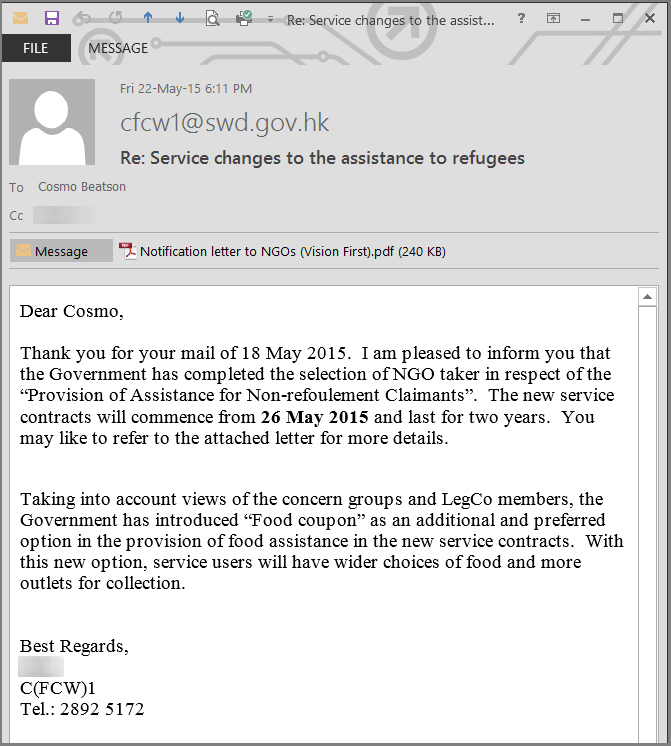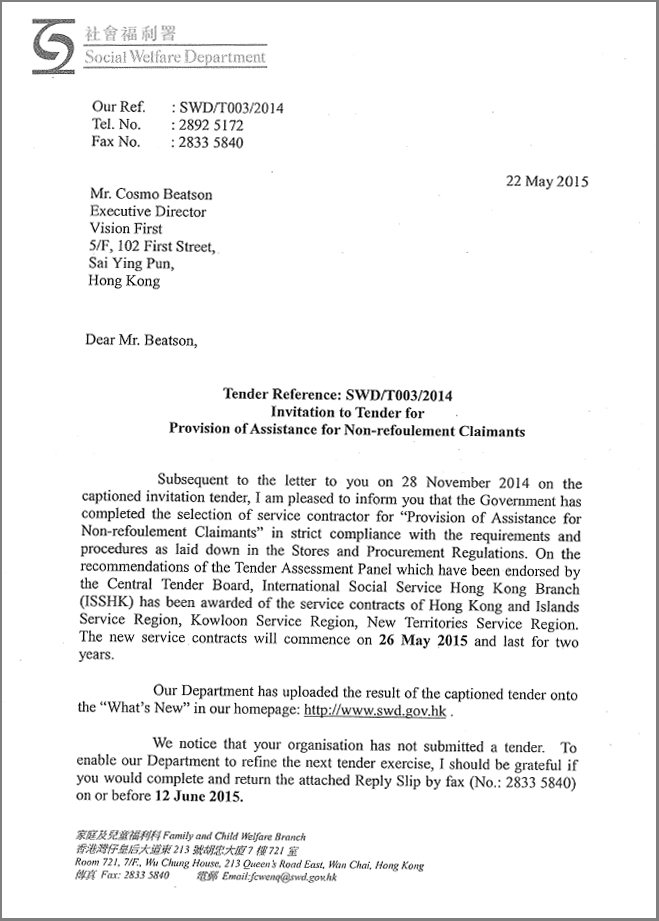LegCo Welfare Panel to discuss refugee aid on 8 June 2015
May 30th, 2015 | Food, Government, Housing, VF Opinion, Welfare | Comment
On 1 April 2015, Vision First and the Refugee Union launched an action to file complaint letters with the Legislative Council Redress System. Several hundred letters were completed and lodged with the assistance of lawmaker Fernando Cheung Chiu-hung and his hardworking team.
The complaints to the Legislative Council summarized the daily plight of refugees who rely entirely on government welfare and are not allowed to earn an honest living. Most often, refugees have no savings, certainly no lawful income and most commonly cannot rely on limited social networks and NGO assistance.
It is widely recognized that the current levels of assistance offered refugees are grossly inadequate: $1500 in rent assistance, $1200 in food coupons and a few hundred dollars for utilities and transportation. Refuges are loath to rely exclusively on welfare, but stringent immigration policies punish them for working and leave them with no alternative.
Vision First request that the Hong Kong Government, the Security Bureau and SWD fulfil their obligation to provide for asylum seekers and refugees’ basic financial, material needs or otherwise. These needs include, but are not limited to, appropriate quantity and quality of food assistance, payment of full rent and utilities, payment of full rental deposits to landlord, daily necessities like cooking gas, clothing, health care, transport allowance for required trips always payable in full and in advance. We request that ISS-HK sign the Tenancy Agreements as refugees have no savings or income to pay rent balances every month.
Vision First further request that a Task Force be established to investigate why persons requesting and having been granted international protection in Hong Kong have been left destitute despite a system being in place to disburse government funding to prevent this condition from happening. Such policy failures have caused refugees needless and unreasonable physical, mental and psychological suffering.
On 22 April 2015, Vision First and representatives of the Refugee Union met with the Hon. Fernando Cheung Chiu-hung to present these concerns to the Legislative Council’s Panel on Welfare. Vision First noted that deterrence objectives and criminalization of vulnerable foreigners should not overshadow welfare considerations when refugees are suffering in our community. It stands to reason that, if work rights are denied to refugees, the authorities have a legal and moral obligation to increase welfare to realistic levels consistent with human right laws.
Following the above initiative, we are pleased to inform that the Legislative Council’s “Panel on Welfare Services” has scheduled “Issues relating to welfare of refuges, torture claimants and asylum seekers” for their meeting on Monday, 8 June 2015. Refugees are invited to submit suggestions to Vision First early next week.
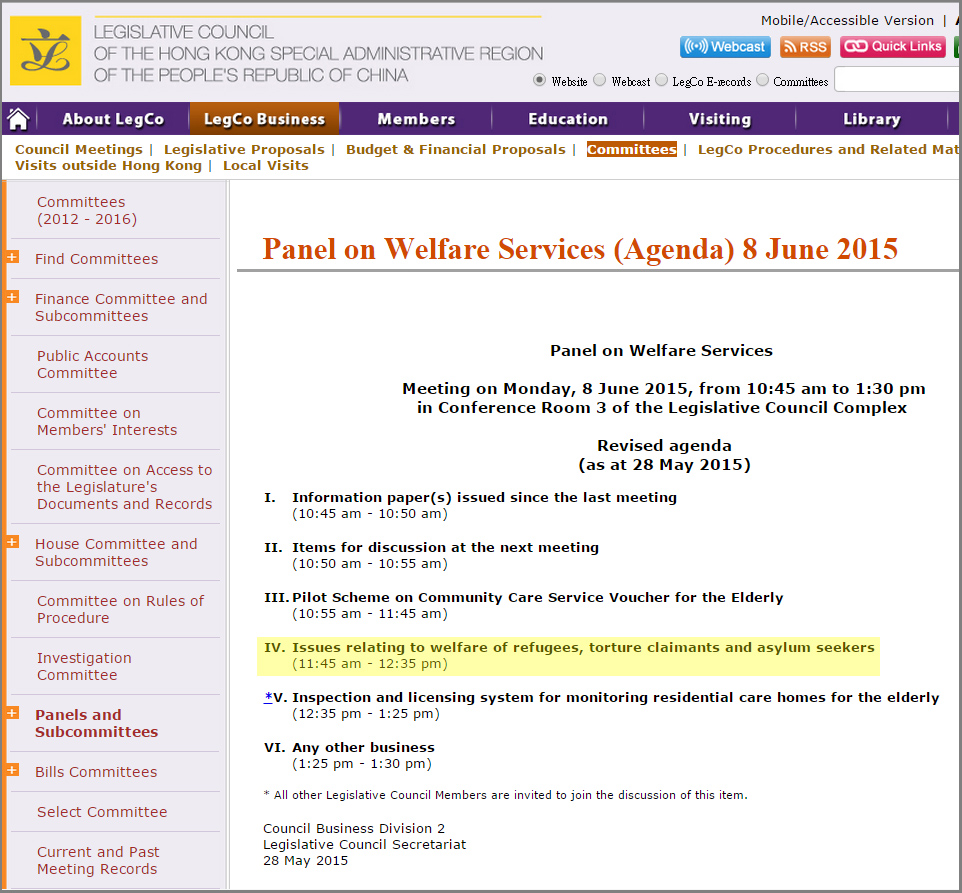
Supermarket coupons replace in-kind food distribution for refugees
May 29th, 2015 | Food, Refugee Community, Welfare | Comment
Remarkable events over the past year demonstrate that refugees can affect change when they work together. Consideration should be given to the events that led to the introduction of supermarket coupons to replace the in-kind food distribution that has been the preferred arrangement since humanitarian assistance for refugees was introduced in 2006.
“We request the immediate introduction of itemized price to ISS food collection forms … it is vitally important that we … are informed and allowed to make informed decisions on what is available, at what price and in what quantity.”
On that morning refugees staged a sit-in at three branches of ISS-HK to protest against practices alleged to reduce the value of rations and cause widespread hardship to refugees who rely on government assistance and face 15 to 22 months incarceration if arrested working.
The Media investigated the food distribution system established for refugees which was claimed to compromise food security rights for the asylum population.
On 19 February 2014, the South China Morning Post reported that:
“Post’s research supports claims that food supplied by government contractor is worth much less than its stated value … A comparison found that buying the goods on the lists would cost between 13 and 30 per cent less than the HK$ 1,060 worth of food ISS was contracted to provide … The amount for groceries increased to HK$ 1,200 this month after government nutritionists deemed an increase necessary.”
On 20 February 2014, Metro Daily published its investiation:
“Refugees were left hungry like dogs … The government has increased the amount of assistance to be provided to refugees … investigations have found that the food they are receiving from ISS is less than the amount set by the government by at least 25% … That adds up to just $900 per month and this is less than the official aid amount by $300.” (Translation)
On 9 March 2015, Cable TV reported the results of its investigation:
“The food rations refugee collect every month have ‘shrunken’. We investigated how much the reduction is and where the missing money goes … Our reporter took his food packages to compare prices at the market. The total price of his monthly food was $993.30 or $200 less than his $1200 food allowance. Also the weight of the food Hassan collected is less than what he selected in the forms … Our reporter also found that other refugees receive ‘shrunken’ food collection … about 20% less.” (Translation)
In March 2014 the refugee community was disappointed by the initial reaction of the Social Welfare Department that dismissed many documented complaints:
“The SWD has conducted in-depth investigations into over 20 complaints made by service users about the undesirable quality and quantity of the food they received. Investigation results showed that the complaints were not substantiated. The SWD will continue to take each and every complaint seriously.”
Nonetheless, the Refugee Union directed numerous complaints to the SWD head-office on a regular basis and established trust with senior welfare officers who became increasingly sympathetic with the problems brought to light. While powerless to increase the actual levels of assistance, the SWD considered implementing remedial actions.
Cautious optimism spread in December 2014 when the SWD issued a new servive tender requesting that:
“The Contractor shall provide each Service User with food of different varieties … in the form of food coupons that should be non-transferable and non-cashable.” While concerns were raised about the actual implementation of the scheme – for example, would the current shops be involved – the shift away from emergency rations was welcomed.
Finally on 28 May 2015, the Refugee Union’s relentless campaign scored a historic victory with the introduction of food coupons from “Wellcome”, self-described as the largest and longest established supermarket chain in Hong Kong with 280 stores serving more than 16 million customers every month.
Initial reactions are positive. Yet it is reported that the Refugee Union will monitor the implementation of the system, one member noting possible shortcomings:
“There is another issue about food items which we South East Asians eat, like atta, dall, basmati rice. Will these be available at (Wellcome)? And one thing more during I was at ISS office I heard a (refugee) was arguing with officer about halal meat problem. So I asked my officer why ISS did not get refugee representatives’ advice before the take any decision?”
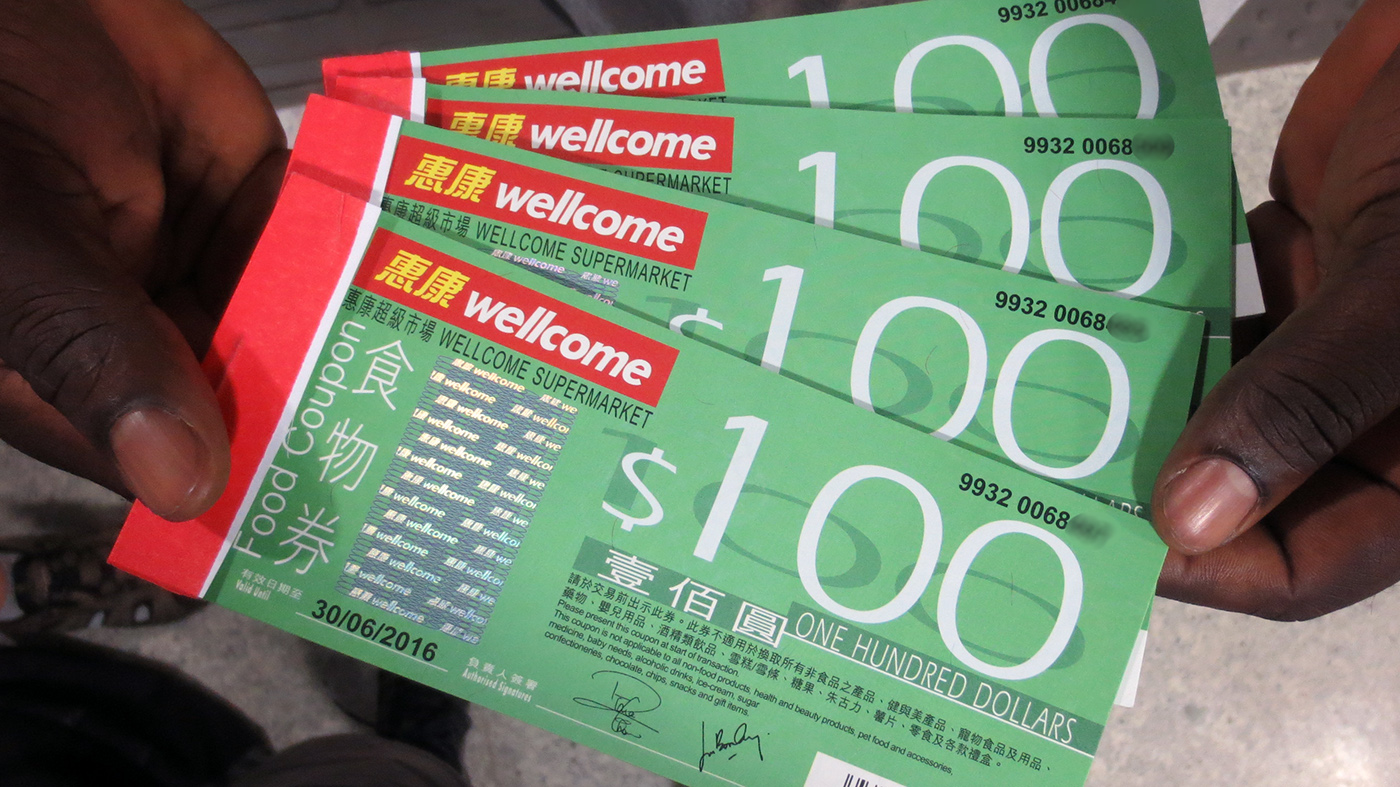
SWD awards new service contract for refugees to ISS-HK
May 22nd, 2015 | Food, Government, Housing, Welfare | Comment
Blue notices on monthly ISS contracts
May 11th, 2015 | Refugee Community, Welfare | Comment
Vision First has learned from the refugee community that unusual ‘Blue Notices’ are being attached to the monthly ISS-HK agreements for provision of services. It is reported that the notices have appeared at all three ISS-HK branches in Prince Edward, Mongkok and Tsuen Wan.
The notices advise refugees to call, “ON MAY 28-29, 2015 TO KNOW WHERE YOU SHOULD REPORT FOR JUNE 2015 CONTRACT RENEWAL.” If it occurred only at one office, one could speculate that rental increase might be forcing a relocation. But why are these notices issued at three branches?
Upon inquiry from refugees, case workers replied that the office concerned was moving. Certainly relocation is hardly uncommon in ever expensive Hong Kong, but what are the odds of three branches ending leases with presumably three landlords at the same time?
It should be noted that June 2015 coincides with the Social Welfare Department starting its new contract for the provision of welfare services to asylum seekers and refugees. The SWD remains tight-lipped about upcoming changes according to the tendered issued in November 2014.
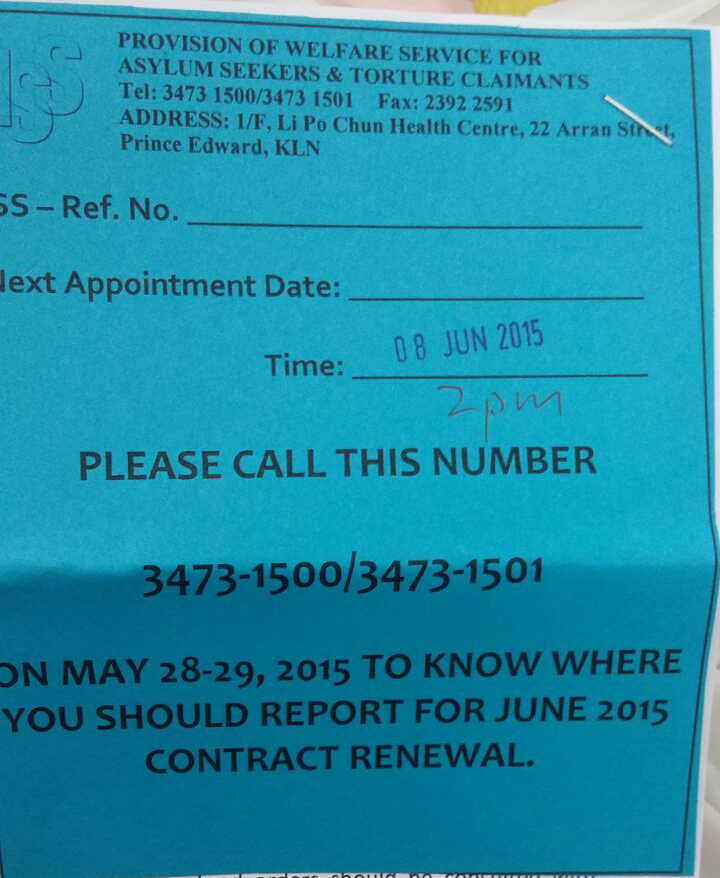
Refugee mother secures rent increase after protesting at SWD
May 11th, 2015 | Housing, Personal Experiences, Welfare | Comment
I am a refugee mother relying on welfare assistance because I am not allowed to work. In 2013 I had a very big problem finding a home so ISS lodged my family in a guesthouse. Safety was a priority as we had been threatened. It was difficult as we could not cook, wash clothes and did not receive any fresh foods. It was very hard for my daughter to eat canned food and noodles every meal.
We looked for a place to stay but ISS only gave us budget of 4500$. On 30 April 2014 we moved out of the guesthouse to an apartment in Hung Hom. It was a studio room with a small kitchen and bathroom. The big problem was the bathroom flooded when there was heavy rain. There were always cockroaches and a terrible smell coming out of the drain.
We wanted to move, but my case worker told us to wait a year to get the deposit back because they would not pay it again. We had to stay in that smelly room until April this year. Two months ago I reminded my case worker about my situation and she confirmed we could find a new place. The only decent rooms we could find were ‘over budget’, according to our case worker.
I had further difficulties because my daughter was accepted at a school in Wanchai, so living in Kowloon was too far away as I didn’t have bus money. My case worker was busy and said she had problems finding homes for many clients. She suggested we stay in the old smelly place for another year! That was unacceptable for us. I threatened to call the media and to protest with the Refugee Union, if she did not help me. I reminded her that in a year she hadn’t visited my room once, despite many promises.
The next day she visited my room with another officer. She noticed that there was no window, that my daughter played on the bed and the bathroom was stinky. She agreed, “You have to move out of this room. It is too small and it is very hot. I approve that you can find a new place”. We went to an agency that took us to see several flats for 5500$ in terrible condition. Later the agent showed me a flat for 6500$ which was OK. But ISS said it was over budget.
As my case worker wanted me to rent a damaged flat for 5500$ and didn’t want to increase the budget, I went to the Social Welfare Department Head-office to complain about the unfair treatment. The next day my case worker called, “OK we will get that 6500$ home for you!” By then the landlord had already rented it, but I was fortunate to find another clean room.
After I protested at SWD, my case worker immediately increased the rent budget and agreed to pay 2 months security deposit (it is usually 1 month), 1 month rent, agency fee and a truck to transfer our belongings. I learned that refugees have to struggle with the system to get better assistance, otherwise case workers will just give the minimum and not care about high rental prices. If I did not protest at the SWD and threaten to return with my Refugee Union comrades, my family would have been stuck in the stinky room, or perhaps homeless.
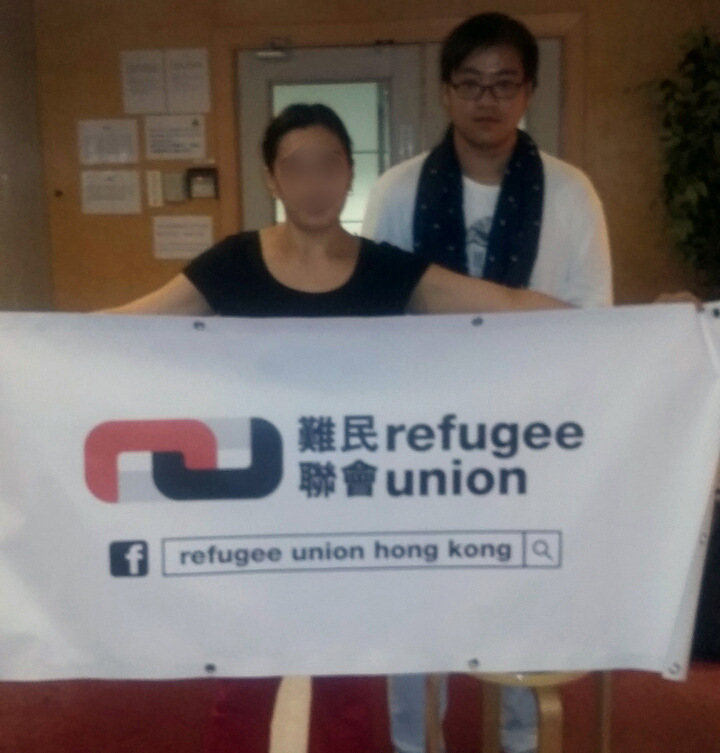
遠走異鄉的故事
May 11th, 2015 | Media, Personal Experiences, Refugee Community, Welfare | Comment
HKBU BJ HONOR PROJECT 2015 BY SANDY YEUNG
Welfare punishment is a doubtful deterrent
Apr 27th, 2015 | Crime, Housing, Legal, VF Report, Welfare | Comment
The Hong Kong government has a preference to describe asylum in negative terms: “Non-refoulement claimants in Hong Kong are illegal immigrants or overstayers, even if their claim is substantiated … they may not take up employment in Hong Kong; violation of the relevant provisions is a criminal offence punishable on conviction to a fine of up to level 5 ($50,000) or to imprisonment for three years … the sentencing guideline in respect of the relevant provision states that 15 months’ imprisonment should be imposed on a person convicted of an offence.” (Finance Committee 2015-16)
Very few lawyers stand apart for attaching the utmost importance to refugee rights and striving to ensure such rights are respected and safeguarded in the interest of the asylum community and the city’s reputation. The reality is that in most cases they have to represent clients pro bono.
In February 2014, barrister Robert Tibbo obtained leave to make an application for the judicial review of the torture claim of a South Asian woman whose appeal was dismissed without an oral hearing. Her council, a non-executive director of Vision First, argued that various factual matters relevant to the case had not been addressed by the adjudicator who cherry-picked country of origin information.
The woman sought refuge in Hong Kong in 2005 to escape from threats to her life and safety due to her political activities and the serious abuse she received from her husband affiliated to an opposing political party. As if her struggle for protection was not enough, a decade later she stood before the bench in Eastern Magistracy to answer to charges of working illegally.
In 2013, the woman was arrested by police at the back of a restaurant where she occasionally washed dishes for exploitative wages. For months she had paid cash for a dilapidated subdivided room, because the landlord refused to accept bank transfers from ISS-HK and she was unable to find alternative accommodation within the paltry rental budget that was then 1200 HK$.
It is not uncommon for refugees to rent the cheapest rooms from landlords who prefer cash payments to reporting bank transaction in income statements. In such cases tenants are obliged to secure cash somehow, or risk being homeless. Under the circumstances, the great majority of refugees seek employment in the informal economy and risk arrest, prosecution and jail for attempting to make ends meet.
Interestingly this woman’s situation ticks several failures in the current asylum policy: 1) denial of protection; 2) prolonged determination of claims; 3) prohibition from working, and 4) insufficient welfare assistance, which in this case included failure by ISS-HK to secure suitable accommodation for a vulnerable woman. Robert Tibbo is seeking a stay of prosecution arguing that systemic failures placed his client in a predicament in which she worked to avoid sleeping in the street.
At a hearing in April 2015, the magistrate suggested that a judicial review be sought against the Director of Immigration who sets the recognizance conditions, including the prohibition from taking up employment. The argument is that if the government openly met the basic needs of refugees and signed tenancy agreements, then refugees would not be compelled to work illegally.
Robert Tibbo explains, “This case is likely to go to the Court of Final Appeal. It is hardly unique since countless refugees struggle daily to pay necessary costs not met by ISS-HK. My client is a victim of an intentional failure by the Government to meet the basic needs of refugees who, when facing similar charges, often plead guilty to avoid stiffer sentences while cognizance that they were entrapped. This case has the potential of changing the system.”
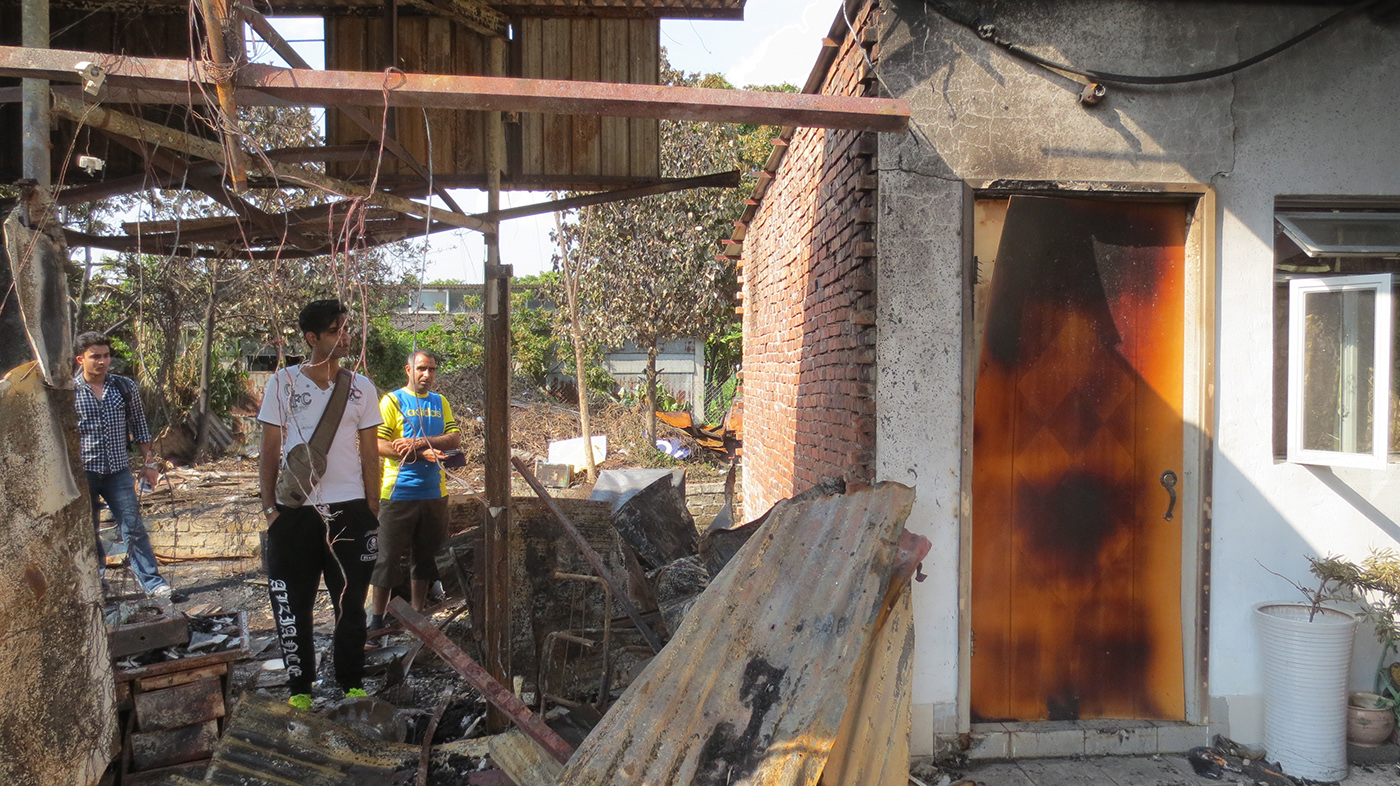
A legal and moral obligation to increase welfare to realistic levels
Apr 23rd, 2015 | Housing, Immigration, VF Opinion, Welfare | Comment
Refugees in Hong Kong worry most about two issues: protection and welfare. Over the years the Immigration Department has done little to allay suspicions that the effective zero-percent acceptance rate is a poor assessment of the asylum community. Welfare issues are equally troubling with policies that deliberately entrap refugees below the poverty line without employment rights.
On a scale of importance, Vision First is primarily concerned about the failure of the Unified Screening Mechanism to generate protection. In the interest of accountability and transparency, Immigration ought to publish monthly results to inform interested parties about its accomplishments in the asylum sphere. This would undoubtedly better inform opinions.
After Hong Kong’s top court denied the right to work in February 2014 to mandated refugees and successful torture claimants, it became disappointingly clear that the authorities are years away from granting employment rights to asylum seekers condemned, by policy and design, to a protracted state of emotional and economic destitution with deterrence aims.
A combination of questionable policies force refugees to run the gauntlet between insufficient welfare and imprisonment for working illegally. Such arrangements strike offenders heavily with arrests and imprisonment that are hardly avoidable when money must be regularly raised to meet necessary expenses, such as rent surpluses, utilities, food and clothing.
Instigated by superficial media reporting, common perception assumes that refugees should receive less welfare than impoverished residents. This is shamefully reflected in the welfare disparity between citizens and refugees, despite the former being allowed to work and the latter jailed up to 22 months for breaking the law in a hostile, and arguably unjust environment.
On 22 April 2015, Vision First and the Refugee Union met with the Hon. Fernando Cheung Chiu-hung to strategize on increasing welfare levels that are unrealistically low (HK$ 1500 for rent and HK$ 1200 for food) and have fallen behind inflection, particularly in the rental market. A first batch of 300 complaint forms were submitted to the Legislative Council’s Redress System to trigger a discussion by the Panel on Welfare that advises the government on such matters.
Questions will be raised about the adequacy of the current assistance which fail to meet the basic needs of a growing refugee population. Deterrence objectives and criminalization of vulnerable foreigners should not overshadow welfare considerations when men, women and children are suffering in our community. As long as work rights are denied, the authorities have a legal and moral obligation to increase welfare to realistic levels consistent with human right laws.
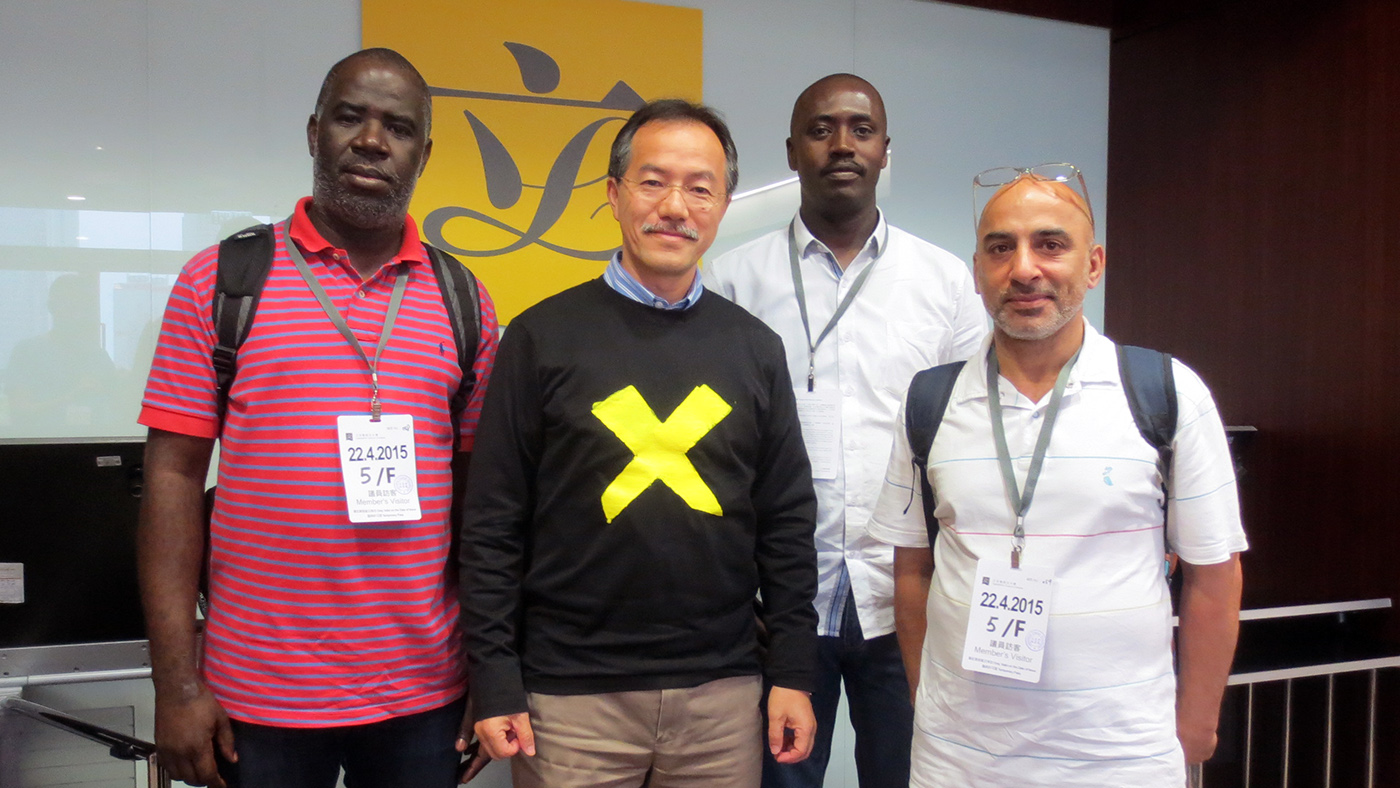
The cardboard box community of Sham Shui Po
Apr 21st, 2015 | Advocacy, Housing, VF Opinion, Welfare | Comment
A fire broke out on a remarkable foot bridge over four-lane Yen Chow Street West in Sham Shui Po on the night of 19 April 2015. This pedestrian crossings was home to over a dozen homeless persons who lived in semi-permanent huts made of plywood, cardboard and plastic sheets. Some had lived there for years.
News of the fire spread quickly among refugees who three times a month join a local charity, which prefers to remain anonymous, to distribute food to this homeless community comprising mostly elderly and troubled residents. This humanitarian service has brought refugees closer to impoverished residents who suffer similar neglect and deprivation in our affluent city.
While firefighters doused the flames, several concern groups rushed to offer assistance and speak about the shameful conditions endured by several hundred vulnerable persons in the neighbourhood. A Refugee Union member later observed, “NGO people should coordinate efforts to advocate for badly needed changes … better welfare and proper homes is what these people need … Isn’t the government ashamed how people suffer in the streets?”
After the fire, a passive-reactive government did what it does best – lock the stable doors after the horse has bolted. Drawing parallels with the fires that brought death and destruction to refugee slums, the Fire Service Department clamped down on the homeless people living on that food bridge with little concern where they would end up sleeping – possibly under a different flyover.
An NGO worker familiar with the area reported that there are over 60 Vietnamese refugees living in cardboard huts under that section of the West Kowloon Corridor. A long row of huts adjacent to the Tung Chau Street Park offers a sheltered space for sleeping and storage. These shacks are apparently tolerated by the authorities on the hidden side of the wet market where they are less likely to offend the public conscience.
It is understood that the refugees living there collect groceries at the ISS-HK appointed shops and cook with gas stoves on the pavement. There is no electricity for refrigerators. These refugees are unable to rent rooms for the 1500$ allowance and lack the organizational skills to request better assistance. They might strengthen statistics presented to the Social Welfare Department that encompass refugees who collect food rations, but seemingly do not require rent assistance.
Vision First will partner with Refugee Union to plan a Vietnamese language drive to reach out to this most marginalized and uninformed sub-group said to comprise veterans who have been in Hong Kong for twenty years as well as newcomers who arrived within the last year.
The plight of the homeless ought to be a concern for all citizens privileged to sleep under a proper roof. The human suffering caused by ineffective policies ought to resonate with everyone as we wonder why government and community are failing the most vulnerable in society, citizens and foreigners alike.
“Tonight we will gather to serve the homeless again,” remarked a refugee mother, “There are people suffering worse than us and this (community service) opened my eyes. I cannot work, but I can help other needy people. This is very meaningful for me. At the end of the day we are the suffering people … It doesn’t matter the colour of our skin or where we come from.”


